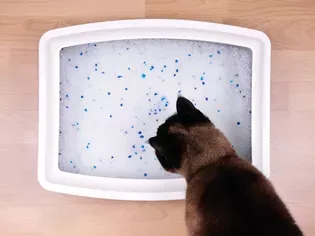Kitten Constipation: What to Do When You Kitten Can't Poop
Updated on 04/26/24

Kitten Constipation: A Definitive Guide to Causes, Symptoms, and Treatment
Constipation, the inability to pass stools easily or regularly, is a common issue that can affect kittens for various reasons. Understanding the causes, symptoms, and effective treatment options is crucial to ensure your furry friend's well-being and prevent potential complications. In this comprehensive guide, we delve into everything you need to know about kitten constipation, empowering you with the knowledge and tools to provide your feline companion with the best possible care.
Causes of Constipation in Kittens
Numerous factors can contribute to constipation in kittens, including:
* Diet: Inappropriate diets, such as those lacking fiber or excessive in dry food, can lead to stool hardening and difficulty passing.
* Dehydration: Kittens who do not consume enough fluids can develop dehydrated stools, making them challenging to pass.
* Underlying Medical Conditions: Intestinal blockages, kidney disease, and neurological disorders can disrupt the normal digestive process and cause constipation.
* Environmental Stress: Changes in environment, such as moving to a new home or introducing a new pet, can trigger stress and affect bowel movements.
* Medications: Certain medications, such as pain relievers, can have a constipating effect.
* Megacolon: A condition where the colon becomes enlarged and unable to function effectively, leading to chronic constipation.
Symptoms of Constipation in Kittens
Recognizing the signs and symptoms of constipation is essential for prompt intervention:
* Straining: Kittens may strain or cry while attempting to defecate.
* Infrequent Bowel Movements: Decreased frequency of stool production or going more than 24 hours without a bowel movement.
* Hard, Dry Stools: Stools may be small, hard, and dry, resembling marbles or logs.
* Lethargy and Loss of Appetite: Constipation can cause discomfort and reduced mobility, leading to a decrease in appetite and energy levels.
* Vomiting: In severe cases, kittens may experience vomiting due to intestinal discomfort.
* Abdominal Distension: The abdomen may appear swollen or bloated due to the buildup of stool.
Treating Constipation in Kittens
Addressing kitten constipation promptly is crucial to prevent complications. Treatment options vary depending on the underlying cause and severity of the condition:
* Diet Modification: Adjust your kitten's diet to include more fiber-rich foods, such as pumpkin puree, canned pumpkin, or fiber supplements. Ensure adequate hydration by providing plenty of fresh water.
* Laxatives: Over-the-counter laxatives, such as lactulose or mineral oil, can help soften stools and promote bowel movements. Follow dosage instructions carefully.
* Enemas: In severe cases, your veterinarian may administer an enema to help evacuate the colon.
* Medical Management: If an underlying medical condition is causing the constipation, it must be addressed and treated accordingly.
* Surgery: In rare cases, surgery may be necessary to remove a blockage or correct an anatomical abnormality.
Preventing Kitten Constipation
Proactive measures can help prevent constipation in kittens:
* Provide a Balanced Diet: Feed your kitten a high-quality diet rich in fiber, moisture, and nutrients.
* Ensure Adequate Hydration: Always provide fresh water for your kitten to prevent dehydration.
* Reduce Stress: Create a calm and comfortable environment for your kitten, minimizing potential stressors.
* Regular Exercise: Encourage physical activity to promote healthy digestion.
* Monitor Medications: Be aware of any medications that may have a constipating effect and consult with your veterinarian accordingly.
* Regular Checkups: Schedule regular veterinary checkups to ensure your kitten's overall health and address any underlying issues early on.
Conclusion
Kitten constipation can be a distressing experience for both kittens and their owners, but with prompt intervention and appropriate treatment, it can be effectively managed. By understanding the causes, symptoms, and effective treatment options outlined in this comprehensive guide, you can provide your furry friend with the necessary care and support to overcome constipation comfortably and promptly. Always consult with your veterinarian if you suspect your kitten is constipated to rule out underlying medical conditions and receive personalized guidance on the most suitable treatment approach.
Explore More Pets

Cat Behavior Problems
How to Stop Aggression in Kittens

Long-Haired Cat Breeds
Siberian Cat: Breed Profile, Characteristics, & Care

Cat Behavior Problems
How to Stop Kittens From Scratching and Biting

Long-Haired Cat Breeds
Turkish Angora: Cat Breed Profile, Characteristics & Care

Basic Training
How to Socialize Your Kitten

Short-Haired Cat Breeds
Cute Pictures & Facts About Calico Cats & Kittens

Litter Box Training
Training Your Kitten to Use the Litter Box

Long-Haired Cat Breeds
10 Fun Facts About White Cats